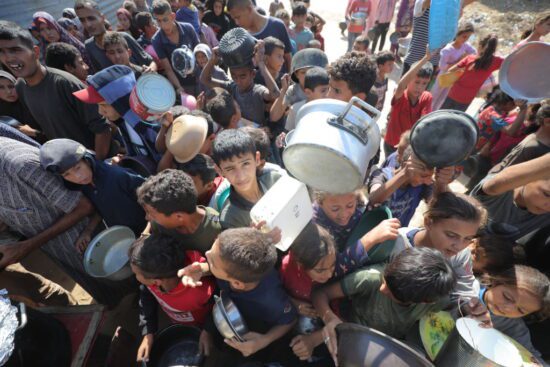All of us have encountered people who do not have the basic necessities of life. To see someone without food to eat and ignore their situation goes against who we claim to be as God’s people. We know that. So, what do we do to care for the hungry men, women and children in our midst? As I have tried to answer this question over the years, I have learned a priceless lesson about dumb duplication.
Many of us have a right desire to address hunger in our communities. A typical response is to create a food pantry, but is it really the best course of action in all situations? To stock a closet full of basic food necessities will cost a couple hundred dollars to several thousand, and replenishing supplies could be an ongoing expense of several hundred dollars per month.
Do we need to duplicate something that already exists? It is likely that other ministries, non-profits or government agencies in your city already provide food for people in emergency situations. Whether these services are Christian ministries or government offerings, we can lean on these groups to care for people’s needs without expending a ton of resources to start something new.
Become a source of hope and information
By tapping into these services, you can focus your church’s resources on meeting unaddressed needs in your community. For example, you could use that money to care for widows or unwed mothers. We must be wise with the resources God has placed under our care, and duplicating existing relief efforts is not the epitome of wisdom.
This principle of avoiding duplication applies to all areas of mercy ministry. Your church doesn’t have to own every ministry that is needed in your community. You are responsible to help people, including connecting them to existing avenues of relief in emergency situations.
Whether you are deciding if your church will start a food pantry, clothes closet, mentoring program for neglected children or any other compassion ministry, a key step is to determine the existing services in your community. If your church becomes a source of information referring people to existing services, your church will conserve resources that could be vital to other ministry opportunities.
Taking this approach would allow you to help through existing opportunities for relief as well as addressing neglected areas of need in your community. So, remember to avoid dumb duplication and find existing ways to meet people’s needs before starting something new.
Rather than duplicating, explore and utilize existing ways to meet people’s needs, and redirect your church’s resources to other neglected areas of need.
This was originally published at sendnetwork.com.









